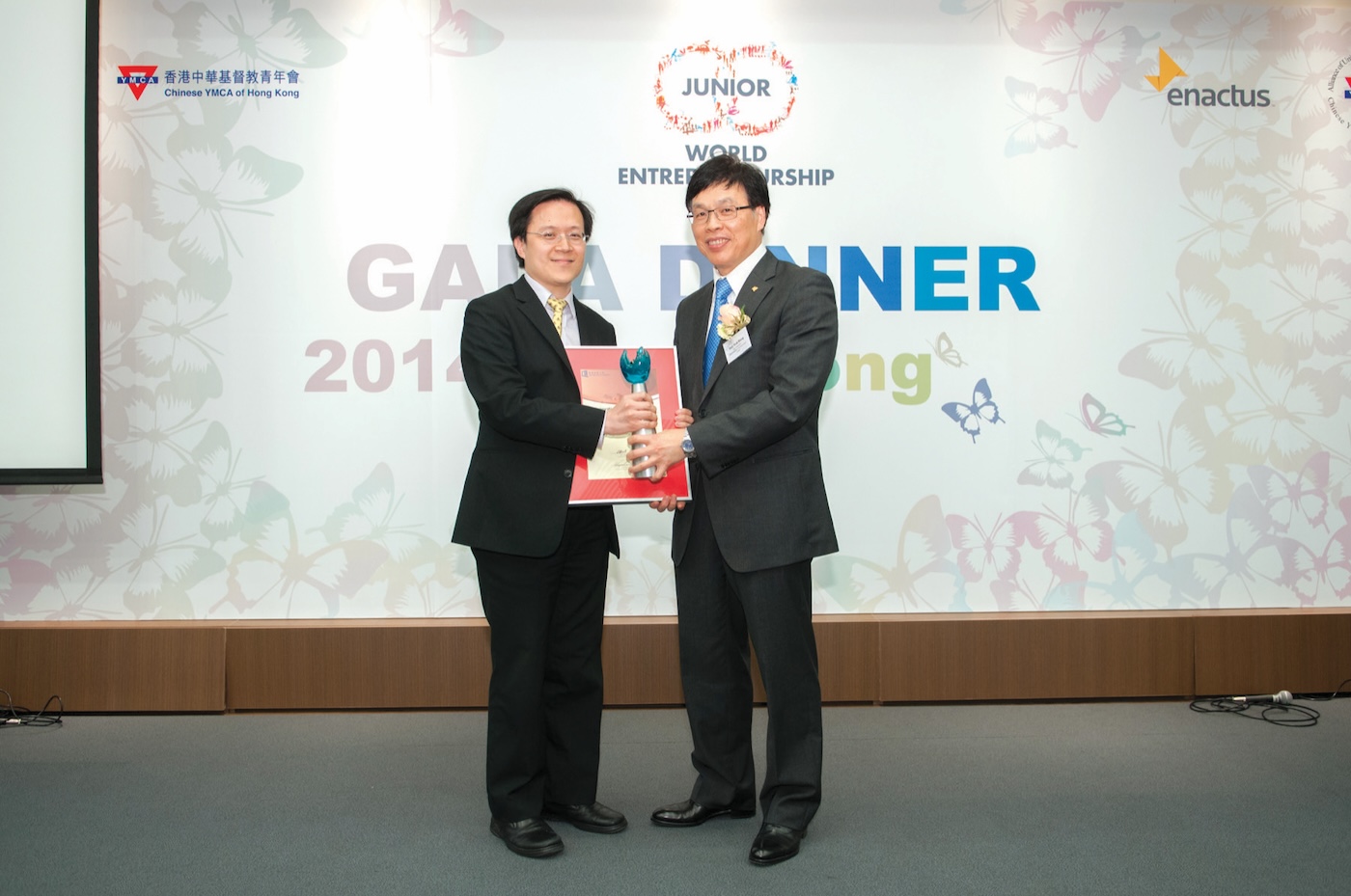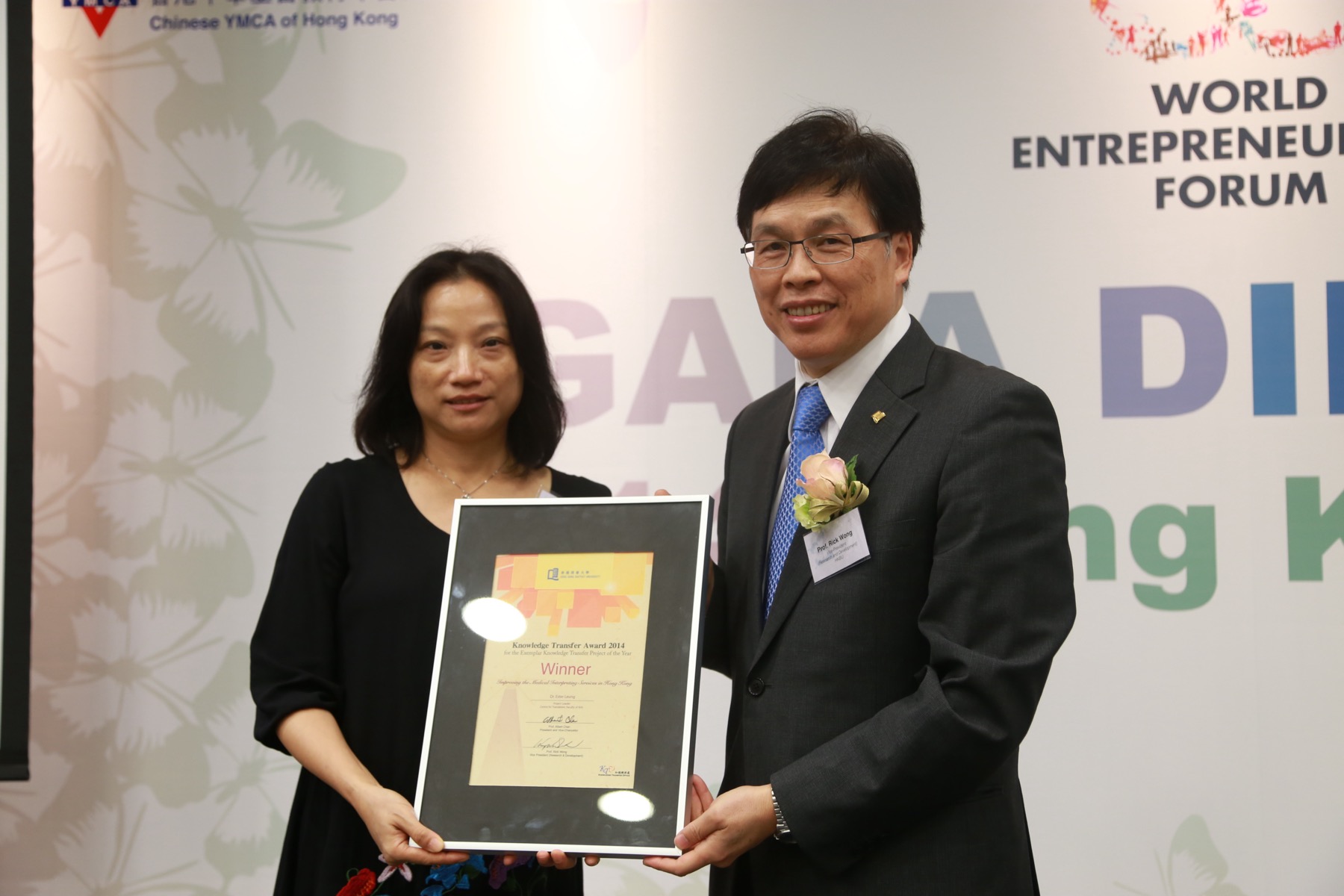Previous Events
KT Awards Recipients of Year 2013/14
The Innovationem Award (renamed as HKBU Innovation Award)
Awardee: Prof. WONG Wai Yeung
Department of Chemistry
Project:
“New Organometallic Phosphors for Optoelectronic Devices”
Organic light emitting diode (OLED) technology has entered into the flat panel displays and lighting markets to compete with the current-dominant liquid-crystal displays (LCDs) and light emitting diodes (LEDs) due to light-weight, thin, fast-response and low-power consumption attributes. However, thermally stable and solution-processable phosphors that suit for these applications are still under development; and there is an issue of poor morphology during device fabrication.
Dedicated to researching the design and synthesis of new organometallic phosphors with very promising photo-functional properties and energy functions, Prof. Raymond Wong, Associate Head and Chair Professor of the Department of Chemistry, has obtained a US patent for a novel method to obtain highly amorphous and phosphorescent compounds comprising diarylaminofluorene groups that offer low ionisation potential, induce morphologically stable amorphous thin-film formation and good thermal stability. It also encompassed methods of tuning colors. These phosphors can be used in manufacturing OLED for the applications of solid-state lighting, black-light displays, full color displays, transparent and flexible displays. Apart from OLED, these materials have wide applications such as sensor or eye protectors against harmful intense laser beams, converters for light/electricity signals in organic solar cells and patternable precursors for fabrication of nanoscale magnetic data storage devices.
To recognise his outstanding research projects in the field of natural science, Prof. Wong and his research team were awarded the 2014 HKBU Innovationem Award.
The Knowledge Transfer Award (renamed as HKBU Knowledge Transfer Award)
Awardee: Dr Ester LEUNG Sin-man
Centre for Translation
Project:
The Knowledge Transfer Partnership (KTP) Seed Fund supported project by Dr Ester Leung, Associate Professor of the Department of English Language and Literature, entitled “Improving the Medical Interpreting Services in Hong Kong”, successfully established a medical interpretation community for the ethnic minorities in Hong Kong. Dr Leung is putting to good practice her research outcomes from her University Grants Committee (UGC) supported public policy research project, entitled “Community Interpreting in Hong Kong”, to reduce the inequity in ethnic minorities access to public interpreting services in Hong Kong.
Collaborating with several external partners including Hong Kong SKH Lady MacLehose Centre, Hong Kong Christian Action and Hospital Authority, the project has helped an ethnics minority group to form the Multilingual Interpreters’ and Translators’ Association (MITA) in 2012, a non-profit organisation, together with Hong Kong Translingual Services. MITA currently serves as a common platform for the interpreters and the service users and providers in its network to share information.
The project has successfully trained 20 ethnics minorities as interpreters and 6 of them are working for MITA. To recognise Dr Leung’s outstanding voluntary work and contributions to the training of interpreters from the ethnic minorities and their trainers, Dr Leung was named the “Outstanding Mentor of Social Enterprise” in the Friends of Social Enterprise Award Scheme 2013 organised by the Home Affairs Department of the HKSAR Government. Dr Leung was also awarded the HKBU Knowledge Transfer Award 2014, which is sponsored by the UGC Knowledge Transfer funding and administered by the Knowledge Transfer Committee via the Knowledge Transfer Office. This Exemplar Knowledge Transfer Project of the Year Award is awarded to a knowledge transfer project led by a HKBU colleague/team, which is judged to have utmost value for community engagement through its knowledge transfer.

